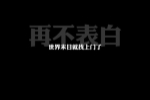
英语作文练习贴【一】
一. .................................................................................................................................................. 1
二. .................................................................................................................................................. 1
三. .................................................................................................................................................. 2
四. .................................................................................................................................................. 3
五. .................................................................................................................................................. 8
一简述
1. 当过去分词在句末时,不管有无逗号,都是就近修饰名词;
2.现在分词在句末时,无逗号是就近修饰的名词的定语;
3.当现在分词在句尾且前有逗号时,修饰邻近句子的'主语,做主语的伴随状语或做句子的伴随结果.因此不能用句尾现在分词修饰前面句尾的名词. 所以OG127说C选项:"the phrasehaving been assigned...is uncertain in reference,making the sentence unclear."-->就是说这个现在分词本来是应该修饰前面的employee的,却变成了修饰主语governments了. (另外在GMAT里,having been done的用法错误,应直接用done
避免上述错误的方法:所修饰的名词在句尾用定语从句修饰--OG127正确选项B (而不用加逗号的现在分词修饰.其实分词是定语从句的省略形式,在句中无逗号分词(注意是无逗号的,有逗号的在句中有歧义就比定语从句简洁还有 OG120也是同样道理:修饰句尾名词,正确选项A用定语从句.E选项的句尾现在分词错误.
4.当现在/过去分词在句中且前没有逗号,修饰前面紧邻名词;
5.当现在/过去分词在句中且前后都有逗号,有歧义:1修饰前面紧邻的名词,2向后修饰后面句子的主语.
这种结构在GMAT肯定错,如果修饰某句主语,则避免将该分词置于以名词结尾的句后.避免方式:1用定语从句/介词短语明确修饰对象.2可将分词提到句首,所修饰主语及所在句子紧跟其后-->形成句首分词修饰句子主语.见OG179
6.在前面有多个名词如名词1+介词+名词2结构,而要用分词修饰名词1时,为避免歧义要重复名词1即用同位语结构:名词1+介词+名词2,名词1+分词.见OG208
二.
1、doing/done,SVO 注意分词的逻辑主语与S一致
2、介词/连词+doing/done,SVO 也要注意分词逻辑主语与S一致
3、S,doing/done,V 分词作定语修饰主语(前后一对逗号隔开,相当于定语从句)
注意:如果出现: “名词,doing,名词”,则会有分词前后的修饰歧义,如179DE,245E
4、SVO doing 分词作定语修饰主语,如 96AC,121C,146E,222A,234B,237E
5、SVO,doing
A、分词优先作状语
1)修饰主语(与分词在句首一样,注意逻辑主语),如 33B,39C,44B,120E,163D,256B
2)修饰主句动作,如 78BD,119B,154A,259A
B、其次作定语,但没有定语从句清晰,会有修饰歧义,如 253DE,(“,including”除外 249)
6、SVO done 分词作定语修饰O(同4)
7、SVO,done
A、分词作状语修饰S,如 大全558
B、分词作定语修饰O,如 127A(分词相当于形容词 253A)
some people base on sth是绝对错误的。但是有sb. base sth. on sth.的用法. 三.
1.SVO+doing,无逗号的情况下doing是针对宾语的动作,96AC(OG says : assuring针对主语有问题,121C,146E,222A(OG says: enabling很好的修饰了宾语,234B,237E -------以上证明了ets的偏好,svo+doing修饰主语是模糊的,修饰宾语是清晰的
2.SVO, doing有逗号,33B,39C(Og says:protecting很好的
解释了主语的行为,44B,120E(Og says:错误选项有可能混淆的指代主语而不是逻辑上正确的宾语,163D(Og says:sleeping正确的修饰了主语,256B --------以上证明了在Og中svo,doing的doing多指代主语
3.svo,doing有逗号,78BD(doing指代了前面整个句子的行为,119B(同前,154A(*,259A(同前------------以上证明了Og中svo,doing的doing多指代前面的整个句子
四.例子
产生participle phrases原点是为了to reduce wordiness by replacing longer adverbial or relative clauses,另外要强调的重要讯息不会写成participle phrases,因为分词修饰语属于次等地位(The
modifier is subordinate to the main clause。也就是说A….and B…(A与B一样重要,如果A…V..,B...Ving (就重要性而言A>B
简单一句:分词构句是主要句子的意义延伸。
目前我看到有几种句意:
1. 因果(★★★★★
2. 补述:解释某事(★★★、描述状态并列或伴随(★★、纯举例
participle
phrases如此具困扰性是因为可以改写的来源多
1.由adj. clauses (如who, which开头可改写成分词词组。考题中可分形容词子句限制性、非限制性改分词的考法。
2. 副词子句(有连接词开头的也可改分词词组,所以有因果关系或时间关系,单纯就时间关系看,可以有先后或同时,会有动作是伴随或是并列关系。
3.当三个以上的动词用and相连时,后面的部分也改写成分词(V, Ving... and Ving...。
我看过的说法中,觉得Manhatan GMAT备考网站,里面指导员所讲的分词概念不错,但是他的目的在卖书,所以讲的真的不多。
1.当分词构句放句首,修饰后面句子的主词。前几天看到有人发帖的整理,讲到分词在句首,表示此动作先于主要句子的动作,讲的真好。
2.当分词构句不放在句首时:
if
there's NO COMMA before a participle, then the participle creates an adjective phrase that modifies the noun immediately
preceding.
if
there's a COMMA before a participle, then the participle creates an adverb phrase that modifies the action of the preceding
clause.
PS:逗号的产生可能是插入语,遇到插入语可以跳过不看,不代表分词修饰这个插入语。
判断上抓前句的动词与主词,如果用中文想就是「此主体这个动作的行为导致或表示.....」(to modify the action of。而且不可以只有思考主词或动词。 如果遇到前句有数个动词,以找最近的动词为主,譬如V1 to V2,分词构句修饰V2
3.
participle (V-ing after the comma can not modify the subject of the preceding clause's
noun.
這個考「什么情况下不可以改成分词构句?」除了需要有对等连接词的句子,不可改分词构句,因为句意重要性会被改变外,
打逗号的Ving分词,无法修饰逗号之前的名词,所以非限制的形容词子句最好不要改分词Ving构句(有7個考題,但是Ved分词例外(有两个考题。
英语作文练习贴【二】
按要求改写句子知识点梳理
一、概述
按要求改写句子主要考查学生对句子结构的掌握以及用不同句型表达同一意思的能力。考查所涉及到的句子类型有一般疑问句、否定句、反意疑问句、选择疑问句、对划线部分提问、感叹句、保持原句意思、合并成一句、简单句和复合句之间的互换以及改为被动语态等。
二、解题时需注意的几个要点
1、时态:不同的时态相对应的助动词
一般现在时:谓语动词用原形(主语为第三人称单数时,动词加s或es,变否定句、疑问句时助动词为do或does)
一般过去时:谓语动词用过去式,变否定句、疑问句时助动词为did.
现在完成时:助动词have/has+动词的过去分词
过去完成时:助动词had+动词的过去分词
一般将来时:will/be going to +动词原形
过去将来时:would/was or were going to +动词原形
现在进行时:am/is/are+动词的现在分词
过去进行时:was/were+动词的现在分词
2、语态:主动语态变为被动语态的谓语结构
一般现在时:am/is/are+动词的过去分词
一般过去时:was/were+动词的过去分词
一般将来时:will be+动词的过去分词
情态动词:can/may/must/need等情态动词+be++动词的过去分词
3、改反意疑问句时注意hardly, never, seldom, few, little, no等词表达的是否定意义,变反意疑问句时用肯定形式。
4、在合并句子时,有些连词如not only…but also…, neither…nor…, either…or…是就近原则,连接两个主语时动词形式取决于与动词邻近的主语。而both…and…连接两个主语时,主语是复数。
5、简单句和复合句之间的互换常见的有:带有疑问词的宾语从句改为特殊疑问词+to+动词原形的不定式;结果状语从句so…that…改为enough to或too…to…的简单句。
6、保持原句意思改写句子时注意时态不变。
三、习题
练习一
1. We do our homework every evening. (改为否定句)
We _________ ________ our homework every evening. 对划线部分提问
________ ________ do they have a class meeting?
3. She could hardly understand this passage. (改为反意疑问句
She could hardly understand this passage, _________ __________?
4.The manager told him how to get useful information. (改为否定句
The manager _________ _________ him how to get useful information.
5. Tom’s sister can speak English and Japanese very well. (改为反意疑问句
Tom’s sister can speak English and Japanese very well, _________ _________?
对划线部分提问
_________ _________ he live twenty years ago?
7. Sam does some cleaning in the morning. (改为否定句
Sam _________ do _________ cleaning in the morning.
对划线部分提问
_________ _________ have the students worked on the survey?
9. Your father used to ride a bike. (改成反意问句)
Your father used to ride a bike, _______ ________? (对划线提问)
__________ ___________ the population of Germany?
11. Mr. Wang washes his car once a month. (改为一般疑问句)
Mr. Wang (对划线部分提问
will Susan come back from Athens?
13. My friends lost their way when they were traveling in Hong Kong. (改为一般疑问句
________ your friends ________ their way when they were traveling in Hong Kong?
14. 对划线部分提问
________ ________ has Yao Ming been in the Rocket Team?
15. She put the digital camera on the bed just now. (改为否定句
She _________ _________ the digital camera on the bed just now.
16. Mark's flown to Hainan Island for winter holidays. (改为反意疑问句
Mark's flown to Hainan Island for winter holidays, _________ _________?
(专辑. (划线部分提问
_________ did Super Girl Zhou Bichang _________ to Vienna?
18. I’ve already saved enough money to buy a new car. (改为否定句
I ________ saved enough money to buy a car ________.
19. Lily used to have long straight hair. (改为反意疑问句
Lily used to have long straight hair, ________ ________?
20. He has already been there .(改为一般疑问句
__________ he been there __________?
21.They decided that they wouldn't have the picnic because of the bad weather. (改为简单句
They decided __________ _________ have the picnic because of the bad
weather.
22. The English people hardly ever shake hands between the strangers .( 改为反意疑问句
The English people hardly ever shake hands between the strangers, __________ __________?
23. They grew some sunflowers in their garden last year.(改为否定句)
They __________ __________ any sunflowers in their garden last year.
24. Jane drinks milk every morning.(改为一般疑问句)
_________ Jane ___________ milk every morning? (就划线部分提问)
___________ map ___________ to Class 4?
26. You can choose only one of the two: a mini-TV or a DVD player. (改为选择疑问句
you want a mini-TV a DVD player?
27. That detective film is so amazing. (改为感叹句)
___________ ___________ amazing detective film!
28. He has some money left.(改成否定句)
He money left.
29. (划线部分提问)
do the members of the film society meet?
30. His mother knew why the little boy was unhappy all day. (改为一般疑问句
_______ his mother _______ why the boy was unhappy all day?
31. He looks very funny with that hat on. (改为感叹句
_______ _______ he looks with that hat on!. 对划线部分提问
_______ _______ they build this factory?
33. I have already finished the test paper.(改为否定句)
I ________ finished the test paper ________.
34. Johnson denied cheating in the competition.(改为反意疑问句)
Johnson denied cheating in the competition, ________ ________? (对划线部分提问) ________ ________ the story need to be funny?
36. Sam does some cleaning in the morning. (改为否定句
Sam _________ do _________ cleaning in the morning.
对划线部分提问 _________ _________ have the students worked on the survey?
38. (对划线部分提问) _________ _________ has he been a top fashion designer?
39. 对划线部分提问
________ ________ will they move into the new school?
40. to go to the People’s Square by underground. (对划线部分提问
________ _______ did it take you to go to the People’s Square by underground?
练习二:
1. Gold is less valuable than diamond. (保持句意不变
Gold is ________ ________ valuable as diamond.
2. He told the children to go and watch his tank of Ghost fish. (改为被动语态 The children ________ ________ to go and watch his tank of Ghost fish.
3. Unless I have a quiet room, I cannot do any work. (保持句意不变)
I cannot do any work ________ I _________ have a quiet room.
4. The manager arrived here a few minutes ago. (保持句意不变)
The manager has _________here ________ a few minutes.
5. They will send him to work in Japan for one year. (改为被动语态
He will ________ _________ to work in Japan for one year.
6. The words on the notice board are very small. I can’t see them clearly.(保持句子原意
The words on the notice board are small I can’t see them
clearly.
7. We can solve the problems with the help of the teacher. (改为被动语态 The problems can _________ _________ with the help of the teacher.
8. We can’t finish the work in such a short time. (保持原句意思
It’s _________ _________ us to finish the work in such a short time.
9. We must keep the noise under 50 dbs.(分贝(改成被动语态)
The noise must ________ _______ under 50 dbs here.
10. Mike doesn’t like classical music. Billy doesn’t either. (合并成一句) _________ Mike nor Billy __________ classical music.
11. The room is so dirty that we can’t live in it.(保持句意不变)
The room isn’t __________ _________ for us to live in.
12. No one knows when we will start tomorrow. (保持原句意思)
No one knows start tomorrow.
13. The Smiths will invite the professor to take part in the party. (改成被动语态 to take part in the party by the Smiths.
14. If you are not brave, you’ll lose your last chance.(保持原句意思)
you are ’ll lose your last chance.
15. They store much information in the computer. (改成被动语态
Much information ________ ________ in the computer.
16. Don’t throw rubbish here and there. Our teacher said to us. (合并为一句
Our teacher told us ________ ________ throw rubbish here and there.
17. If John doesn’t apologize for what he did, I will tell the teacher about his bad behavior.
(保持原句意思)
_______ John _______ for what he did, I will tell the teacher about his bad behavior.
18. I don't know where we can grow vegetables in the city. (改为简单句 I don't know _________ _________ grow vegetables in the city.
19. People used to enjoy themselves chatting on MSN when it worked well. (保持句意基本不变
People used to _________ a lot of _________ chatting on MSN when it worked well.
20. If you don’t improve your handwriting, you will lose marks in the exam. (合成同义句
You will lose marks in the exam ________ you ________ your handwriting.
21. To go fishing is fun. (句意不变 )
_____ is fun _____ ______ fishing.
22. Dick was so short that he couldn’t touch the top of the bookshelf.(保持句意基本不变)
Dick wasn’t __________ __________ to reach the top of the bookshelf.
23. “Can I borrow your bike for a while or not?”( 保持句意基本不变)
Tom asked his sister __________ he __________ borrow her bike or not for a while.
24. The couple couldn’t decide which flat they should choose at first. (保持原句意
思)
The couple couldn’t decide which flat at first.
25. Meaningless information is difficult for the little boy to remember. (保持原句意思)
is difficult for the little boy remember meaningless information.
26. People throw away millions of plastic bags in our city every day. (改成被动语态)
Millions of plastic bags away in our city.
27. She was so careless that she couldn’t find the mistakes in her test paper. (保持句意基本不变
She was _______ _______ to find the mistakes in her test paper.
28. We will hold the next Olympic Games in Beijing in 2008.(改为被动语态)
The next Olympic Games will _______ _______ in Beijing in 2008.
29. The elderly man pushed the birds into the river.(改为被动语态)
The birds ________ ________ into the river by the elderly man.
30. Dolphins are so clever that they can follow the instructions.(保持句意基本不变) Dolphins are ________ ________ to follow the instructions.
31. We can’t finish the work in such a short time. (保持原句意思
It’s _________ _________ us to finish the work in such a short time.
32. They invited the astronaut and his wife to the party on Christmas Eve.(改为被动语态
The astronaut and his wife _________ _________ to the party on Christmas Eve.
33. The little girl didn’t go to bed unless the grandmother told her a story. (保持句意基本不变
The little girl didn’t go to bed _________ the grandmother _________ tell her a story.
34. The plane is so big that it can carry 300 passengers at one time. (改为简单句)
The plane is big _________ _________ carry 300 passengers at one time.
35. Did they know the answer to the question? Ididn’t know… (合并为一句 I didn’t know ________ they had ________ the answer to the question.
Keys
练习一
1. don’t do 2. How often 3.could she 4.didn’t tell 5.can’t she
6.where did 7.doesn’t any 8.How long 9.didn’t he 10.What is
英语作文练习贴【三】
??鼻子-五年级“往上,再往上一点,好了,停,哈哈哈,错啦错啦!,弟弟正朝着我大喊大叫,高兴的手舞足蹈,惹得在厨房忙活的奶奶不时的探出头来瞧个究竟。
原来,我和弟弟正在玩贴鼻子的小游戏。
起初,我们正在小黑板上画画。我在小黑板上画了一只可爱的大熊猫,可是它的鼻子我用粉笔怎么都画不好。看到弟弟拿着水彩笔在涂鸦,我灵机一动,干脆,我们来贴鼻子吧。
我拿着水彩笔,三下五除二地在纸上画好了熊猫的鼻子,并拿剪刀剪了下来。跟弟弟简单地说明了一下游戏规则,弟弟兴奋地哇哇大叫。
接着,我们就石头剪子布来决定谁先开始。屡战屡胜的我当然又赢了,赢的人当盲人。我把眼罩带上,拿着熊猫鼻子在原地转了三圈,开始行动!
哎呀!头好晕,这是哪个位置?我晕头转向的四处乱摸,凭着直觉朝左走走,朝右迈迈,跟盲人摸象一般,跌跌撞撞的往前挪动。
弟弟则在一旁瞎指挥,一会儿让我往前,一会儿让我往左。听他高兴的喊着,我更加找不着方向。于是我冷静下来,在一片黑暗中,寻找一些其他的声音来帮助我判断。“哗啦啦,哗啦啦,是厨房奶奶洗菜的声音,在我的右前方!那小黑板应该在我的左边。我微微转了转身子,伸出手,小心翼翼的往前触摸。
终于,当我摸到小黑板边缘的'时候,弟弟开心的拍起了手。我摸了摸黑板的四周,脑子里想象我画的熊猫的样子,自信满满的把鼻子贴了上去。
我迫不及待的摘下眼罩一看,糟糕,可爱小熊猫的鼻子长到耳朵上去了!一旁的弟弟早笑得合不拢嘴了。
通过这个简单小游戏,我发现没有眼睛竟然这么痛苦,没有光明,一件这么小的事情都办不好。盲人要面对的困难,真是可想而知,幸运的我们一定要好好的保护眼睛。
英语作文练习贴【四】
(一)改写一般疑问句:
(1)原句中有be动词的,将be动词提前,其他顺序不变。
例如:Thisisacat.变为Isthisacat?
(2)原句中有情态动词的(can/may/shall/would)将情态动词提前,其他顺序不变。例如:Hewouldlikeapie.变为Wouldhelikeapie?
(3)原句中是一般动词的,在句首加助动词do或dose(用于主语是第三人称动词单数的句子),其他顺序不变。例如:Iplaytheguitar.变为Doyouplaytheguitar.
(4)原句中的some变any。
注:以情态动词开头的一般疑问句,并且要求对方做肯定回答的`some不变。
(5)原句中的第一人称改为第二人称。例如:Iamanurse.变为Areyouanurse?
(6)以dose开头的一般疑问句,原来动词的第三人称单数形式要变回原形。例如:Hereadsastorybook.变为Dosehereadastorybook?
(二)改写否定句:
(1)原句中有be动词的,直接在be动词后面加not。例如:Itisadog.→It’snotadog./Itisn’tadog.
(2)原句中有情态动词的,直接在情态动词后加not。
例如:Iwouldlikeahotdog.→Iwouldnotlikeahotdog.
(3)原句中是一般动词的,在一般动词前加don’t或doesn’t(用于主语是第三人称单数的句子),doesn’t后面用原型。例如:Iseethreehamburgers.→Idon’tseethreehamburgers.
原句中的some变any例如:Ihavesomebreadan
dmilk.→Idon’thaveanybreadandmilk.
(4)以let开头的祈使句,如果是letus或letme,直接在其后加not;如果let后面其他人称代词宾格(you、him、her、them、it)就在let后面加助动词don’t。例如:Letusgotothepark.→Letusnotgotothepark.再如:Letthemdohomework.→Don’tletthemdohomework.
(三)对划线部分提问:
对划线部分提问,就是先把一个陈述句的划线部分去掉,然后变为一个特殊疑问句:一是特殊疑问句+一般疑问句;
二是特殊疑问句+陈述句(对主语或主语的定语提问,therebe结构除外)
⑴划线部分是人,用who提问。
⑴划线部分是主语,用who提问,who后面的动词要用第三人称单数形式。如:Whois;Wholikes;Whohas?
方法:who+原句的剩余部分
例如:①HelenandMikearelisteningtomusic.
→Whoislisteningtomusic?
②Ihavesomemodelplanes.
→Whohasanymodelplanes?
⑵划线部分是表语,用who提问。
方法:Who+剩余部分的一般疑问句形式
⑵划线部分是事或者物,用what提问。
方法:what+剩余部分的一般疑问句形式。
注:如果原句是therebe句型,直接用What’s+地点状语来提问。例如:①Wewouldliketobuysomethingsforaparty.
→Whatwouldyouliketobuyforaparty?
②Therearealotofcakesintheplate.
→Whatisintheplate?
⑶划线部分是物主代词或名词所有格,用Whose提问。
方法:⑴划线部分是主语的定语时,Whose+剩余部分
例如:Ourclassroomisbright.
→Whoseclassroomisbright?
⑵划线部分是表语或表语的定语时,Whose+剩余部分的一般疑问句形式例如:①ThewomanisSuYang’steacher.
→Whoseteacheristhewoman?
注:对某部分的定语提问,被修饰的部分跟随特殊疑问句往前提②ThispurseisYangLing’s.
→Whosepurseisthis?
⑷划线部分是地点,用where提问。
方法:where+剩余部分的一般疑问句形式
例如:TheyarehamingaMathslessonintheclassroom..
→WherearetheyhavingaMathslesson?
⑸划线部分是“多少”,用howmany或howmuch提问。
方法:⑴句中是可数名词的用Howmany+剩余部分的一般疑问句形式例如:Therearefifteentreesintheplayground.
→Howmanytreesarethereintheplayground?
⑵句中是不可数名词的用Howmuch+剩余部分的一般疑问句形式例如:Ihaveaglassofjuiceforbreakfast.
→Howmuchjuicedoyouhaveforbreakfast?
⑹划线部分是时间,用when或whattime(具体的几时几分)提问。方法:⑴when+剩余部分的一般疑问句形式
例如:SuYangandSuHaiareathomeonSundaymorning.
→WhenareSuYangandSuHaiathome?
⑵问具体的时间直接用Whattimeisit?或What’sthetime?问
例如:It’sthreeforty-five.
→Whattimeisit?或What’sthetime?
英语作文练习贴【五】
??年级英语暑假改写句子的练习题1. It is fun at school.
改成否定句__________________________________________
改成一般疑问句______________________________________
肯定回答_____________________________________________
否定回答_____________________________________________
2.I like grapes.
改成否定句__________________________________________
改成一般疑问句______________________________________
肯定回答_____________________________________________
否定回答_____________________________________________
3. Miss Green is a good English teacher.
改成否定句__________________________________________
改成一般疑问句______________________________________
肯定回答_____________________________________________
否定回答_____________________________________________
4. Norman likes maths.
改成否定句__________________________________________
改成一般疑问句______________________________________
肯定回答_____________________________________________
否定回答_____________________________________________
5. Jim is watching TV.
改成否定句__________________________________________
改成一般疑问句______________________________________
肯定回答_____________________________________________
否定回答_____________________________________________
6.There are so many animals.
改成否定句__________________________________________
改成一般疑问句______________________________________
肯定回答_____________________________________________
否定回答_____________________________________________
7.I can hear something in the next room.
改成否定句__________________________________________
改成一般疑问句______________________________________
肯定回答_____________________________________________
否定回答_____________________________________________
8. I’ve got the letter“n”.
改成否定句__________________________________________
改成一般疑问句______________________________________
肯定回答_____________________________________________
否定回答_____________________________________________
9. MMike has got a picture of Shanghai.
改成否定句__________________________________________
改成一般疑问句______________________________________
肯定回答_____________________________________________
否定回答_____________________________________________
10.There’s a big playroom in our school.
改成否定句__________________________________________
改成一般疑问句______________________________________
肯定回答_____________________________________________
否定回答_____________________________________________
11. They have got some bananas.
改成否定句__________________________________________
改成一般疑问句______________________________________
肯定回答_____________________________________________
否定回答_____________________________________________
12. Tom and Jim are watching a match.
改成否定句__________________________________________
改成一般疑问句______________________________________
肯定回答_____________________________________________
否定回答_____________________________________________
13. I want some carnations for my mother.
改成否定句__________________________________________
改成一般疑问句______________________________________
肯定回答_____________________________________________
否定回答_____________________________________________
14. Those are roses.
改成否定句__________________________________________
改成一般疑问句______________________________________
肯定回答_____________________________________________
否定回答_____________________________________________
英语作文练习贴【六】
除夕夜那天,我们家真是忙得不可开交啊!下午,妈妈在做团圆饭,奶奶在打扫卫生,爸爸买回春联人就不知道哪里去了。
我看着春联,不如,趁爸爸没空,现在就让我来个大显身手吧。我迅速拿起春联,兴致勃勃地贴去了。
我先来个除旧迎新,把旧的春联用手撕下来,可是,旧的春联像个顽皮的孩子,跟我对着干,紧紧的贴住墙,就是撕不下来。
于是,我提来一桶水,用抹布把旧的春联抹湿后,再用刷子把它弄下来。解决了这个问题,新的问题又出现了,哪幅是上联,
哪幅是下联呢?该贴哪边呢?我拿着春联,急得像热锅上的蚂蚁,不知该如何下手为好。正当这时,爸爸来,他笑了笑,告诉
我左右联的张贴位置。我按照爸爸的指示,先用浆糊涂在墙上,把春联小心翼翼地贴上去,再用手从上至下地把它抹平。大功
告成后,我正仰着头欣赏着自己的“杰作”,却发现爸爸冲我哈哈大笑,原来我变成了大花脸了。
英语作文练习贴【七】
今天我和妈妈一起在家里贴春联和“福”字。
我们先贴春联,春联包括上联、下联和横批。我们家的上联是:平安是福福星照,下联是:百顺为祥祥满堂,横批是四季平安。妈妈贴横批的时候很容易,贴上联和下联就有点难了。我们把双面胶先贴在春联的背面,再把春联贴到墙上去。妈妈爬上梯子,一边贴,一边问我有没有贴正,我说歪了一点,妈妈只好重新贴,这样子来回了两三次才算完成所有的对联。没想到贴春联也不是件轻松的事情。不过看着我和妈妈一起贴的春联,我觉得漂亮极了!
贴完春联以后,我们就开始贴“福”字了。我本来想吧“福”字倒着贴,因为那表示“福到了”。可是因为“福”字上面还有其他的字,所以只好正着贴了。
接下来我们要贴两匹很漂亮的“马”。贴这两匹马对我来说还是比较辛苦的,以为我要两手一直撑着“马”,还不能随便动,要不然就歪了。那两匹马中有一匹是小帅哥马,一匹的漂亮小姑娘马。小帅哥马上面写着:恭喜发财,小姑娘马上面写着:万事如意。两匹马贴好了,他们笑呵呵的看着我们,我们全家都开心的笑了。











